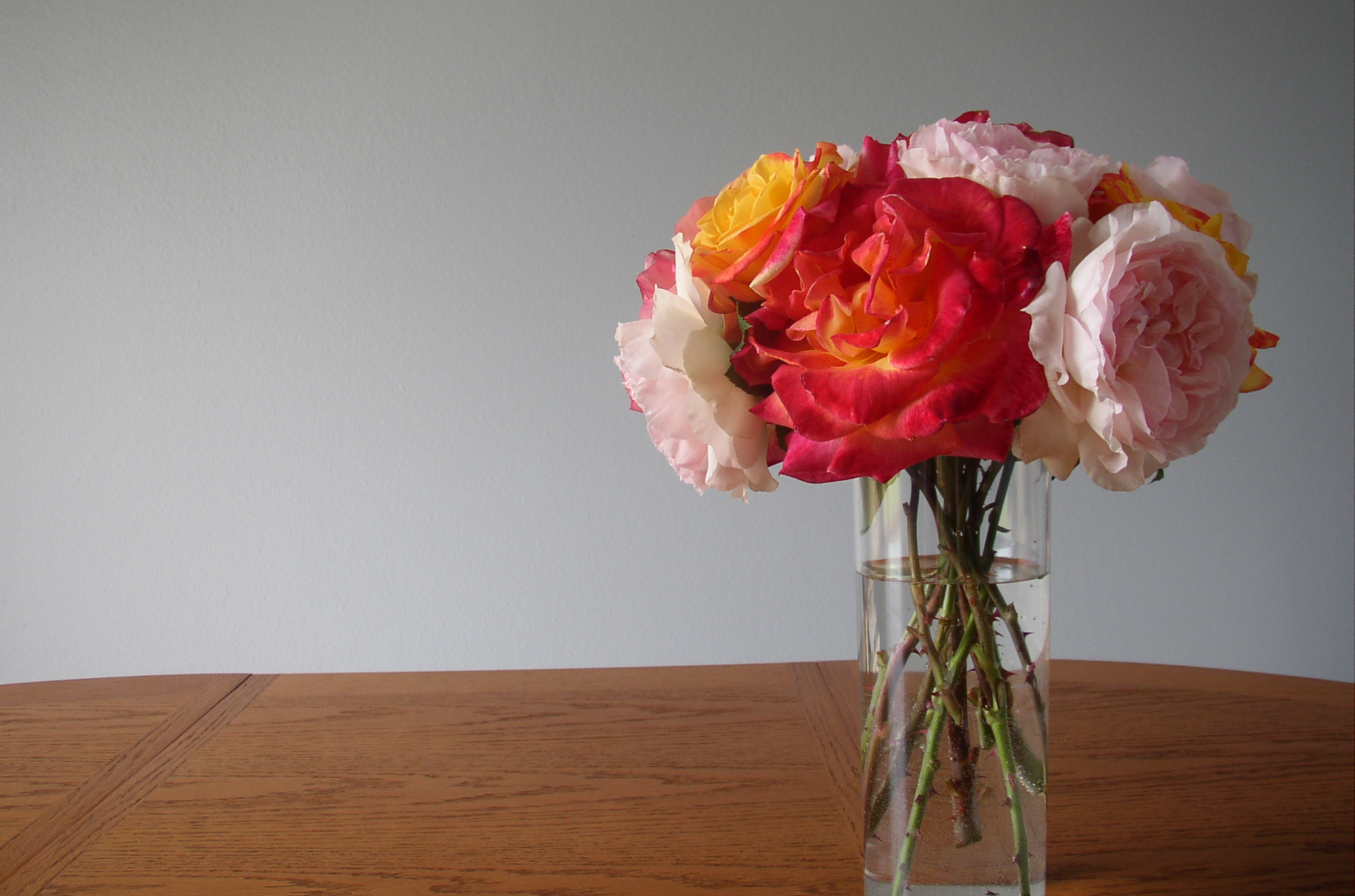People will sometimes associate their indoor air quality with things like scented candles, carpet refreshers, and fragrance plug-ins. We all want to live in homes that don’t “smell bad,” but those scented store products won’t actually take care of any air problems. According to the EPA, the level of air pollutants we’re exposed to indoors is often five times higher than any outdoor pollutant levels, so it’s especially important that our indoor air is properly filtered. Forget the fancy perfumes—if you want a clean and fresh-smelling home, the key is that it shouldn’t smell like anything!
When you’re looking to get your house smelling better, your filtration system is a good first line of defense. It catches dust and other particles in the air to keep your home’s ventilation system from blowing extra contaminants throughout. Replacing your filters regularly will help boost your home’s air quality, but if you really want to neutralize odors, you’ll need more than a good air filter.
In order to tackle the allergens and mold in their indoor air, a lot of homeowners end up adding a UV light to their whole-home filtration system. Think of these lights as special, powerful air cleaners. The UV unit tackles air quality problems that are too complicated for your filter—things like odors and pathogens. We like installing the APCO UV light because it doesn’t create any ozone indoors as it attacks the mold, airborne bacteria and viruses, and odors in your air. The light filters your air by transforming the contaminants into CO2 and water vapor. And with the air contaminants eliminated, you get an unscented home!
The “unscented” part of home air quality is key. A filter can help with dust, but addressing any lingering smells requires a more advanced system, like a UV light. We don’t want the cat’s litter box, stale smoke, pungent cleaning solutions, that fresh coat of paint, or the smell of last night’s dinner wafting into our bedrooms (no matter how delicious it was). Air solutions that truly neutralize odors won’t just mask other smells, they’ll eliminate them. And they won’t leave any scent behind either. That’s the whole point of a UV filter—it takes care of the air pollutants that a filter can’t handle alone.
Independent studies from an allergy testing lab have proven that our go-to UV light removes microbes and VOCs and other air pollutants in your home, but the APCO manufacturer has other perks too. We already mentioned it’s ozone-free. Another bonus is that the APCO’s carbon cells don’t ever get dirty in the air purification process. Unlike other electronic air filters, this one doesn’t have parts that need to be cleaned or replaced every month or two. There’s even a lifetime warranty on the unit itself, plus it has a 2-year bulb rather than just a 1-year bulb like
most other UV units.
By effectively removing airborne pathogens like mold, bacteria, viruses, and other smelly odors, this special kind of filtration helps you get fresh air circulating in your home every day. UV systems are easy to uninstall too—so if you ever end up moving, you can take your current system with you and keep that good air flowing at your new address!
A great UV light keeps your home smelling nice and neutral. If you have any questions about the right type of filtration system for you home, please give us a call or leave us a message below. For the best air quality, unscented is definitely the way to go!
March 23, 2016
Indoor Air Quality- Reducing Allergens In Your Home
Spring has sprung! The birds are singing, the grass is green and the pollen count is high! There's not much that can be done to control the outdoors but what about the air inside your home? Is it possible to improve the air quality in your home to control allergens? You bet! We have a few suggestions and tips:
- Regularly change your filter. A good filter reduces allergens such as dust mites and pet dander. Filters may be fiberglass or pleated and range in size from 1" to 5". Filters also have a rating system called Merv Rating which determines the effectiveness of a filter. The smallest particles are captured with filters with a high Merv rating. A Merv 16, for example, will allow fewer particles to pass through than a Merv 10. It may be worthwhile to look into a media cabinet or a better filtration system for your home to reduce allergens.
- Close the windows and turn on the air conditioner. The air conditioner naturally dehumidifies the house, creating a cool, dry air. Allergens such as mold and dust mites tend to thrive in warm, humid spaces so running the air conditioner can help to keep allergens under control.
- Control the humidity in the house. If humidity levels are still high , it might be time to consider a dehumidifier. Dehumidifiers pull excess humidity out of the air, creating a cool and dry environment.
- Consider a UV Light. UV Lights are effective in controlling airborne allergens, mold, mildew, viruses and bacteria. UV air cleaners break down these allergens and dramatically improve indoor air quality.
Indoor air quality is an important topic! There are many things that can be done to reduce the allergens and improve air quality. Feel free to contact us for recommendations in your home!

